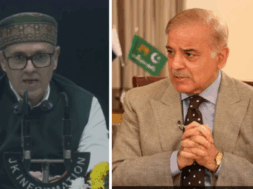
Manas Dasgupta
NEW DELHI, June 15: The newly-formed Congress government in Karnataka led by Siddaramaiah has decided to roll back the “Karnataka Protection of Right to Freedom of Religion Bill, 2022,” (popularly called the anti-conversion Bill) as promised by the party in its state election manifesto.
The Bill was introduced by Home Minister Araga Jnanendra during the Basavraj Bommai government and passed by the state Assembly amidst vociferous protest by the opposition during the Winter Session of the Assembly in September, last year. The Bommai Government “wanted to prohibit conversion by misrepresentation, force, allurement, fraudulent means, or marriage.” “The Bill brought by the BJP in 2022, will be repealed, and the Bill which we are bringing will be in accordance with the Constitution,” Karnataka Law Minister H.K. Patil said.
The Congress in its election manifesto had promised to review, and if necessary scrap, all the laws made by the previous BJP government in Karnataka. The decision to scrap the anti-conversion law was taken at a meeting of the state cabinet held on Thursday. The cabinet also approved changes in the history syllabus in schools and even a law on agricultural markets, Patil said after the cabinet meeting.
The law against religious conversion through coercion, misrepresentation, or allurement, adopted by many BJP-ruled states, was introduced in Karnataka through an Ordinance in May last year and was replaced by a bill in September.
The law became a flashpoint between the BJP and the Congress. The Congress then in the opposition had contended that it was a tool for harassment of minorities. “Our law is capable of stopping conversion that is forced through incentives and threats. Then what is the need for a new law? The only reason is to threaten and harass minorities,” Siddaramaiah had told the media last year.
The Congress had vehemently opposed the Bill, calling it “anti-people”, “inhuman”, “anti-constitutional”, “anti-poor” and “draconian”, and urged that it should not be passed for any reason and should be withdrawn by the government. JD(S) too had expressed its opposition to the Bill.
The Bill provided for the “protection of right to freedom of religion and prohibition of unlawful conversion from one religion to another by misrepresentation, force, undue influence, coercion, allurement or by any fraudulent means.” It proposed imprisonment from three to five years with a fine of ₹25,000, while for violation of provisions with respect to minors, women, SC/ST, offenders will face imprisonment from three to ten years and a fine of not less than ₹50,000.
The matter even went to court, where Christian organisations argued that the new law violated the religious freedom guaranteed by the Constitution. Patil also said the Cabinet has decided to remove the chapters on VD Savarkar and KB Hedgewar, one of the founders of the BJP’s ideological mentor Rashtriya Swayamsevak Sangh, from school history books. The chapters were added last year.
Along with it, all changes in school syllabus made by the BJP government have also been reversed. The Cabinet has also decided to make it compulsory to read the Preamble of the Constitution along with the hymn in schools and colleges, Mr Patil said. The Cabinet has also decided to introduce a new law on agricultural markets (APMC) that will replace the one enacted when the BJP was in power.
Last month, after the Congress won a landslide mandate in Karnataka, the party made it clear that the new government intends to review policies of the previous BJP government. If found regressive or against the interest of the state, they would be “set right,” it said, raising speculation that decisions on the Muslim quota, hijab ban and the anti-conversion law were due for a rollback.
Asked if it would not backfire on the government, minister Priyank Kharge, the son of Congress chief Mallikarjun Kharge, pointed out that the Congress had won a massive mandate, which it would not have had the people supported these policies.












